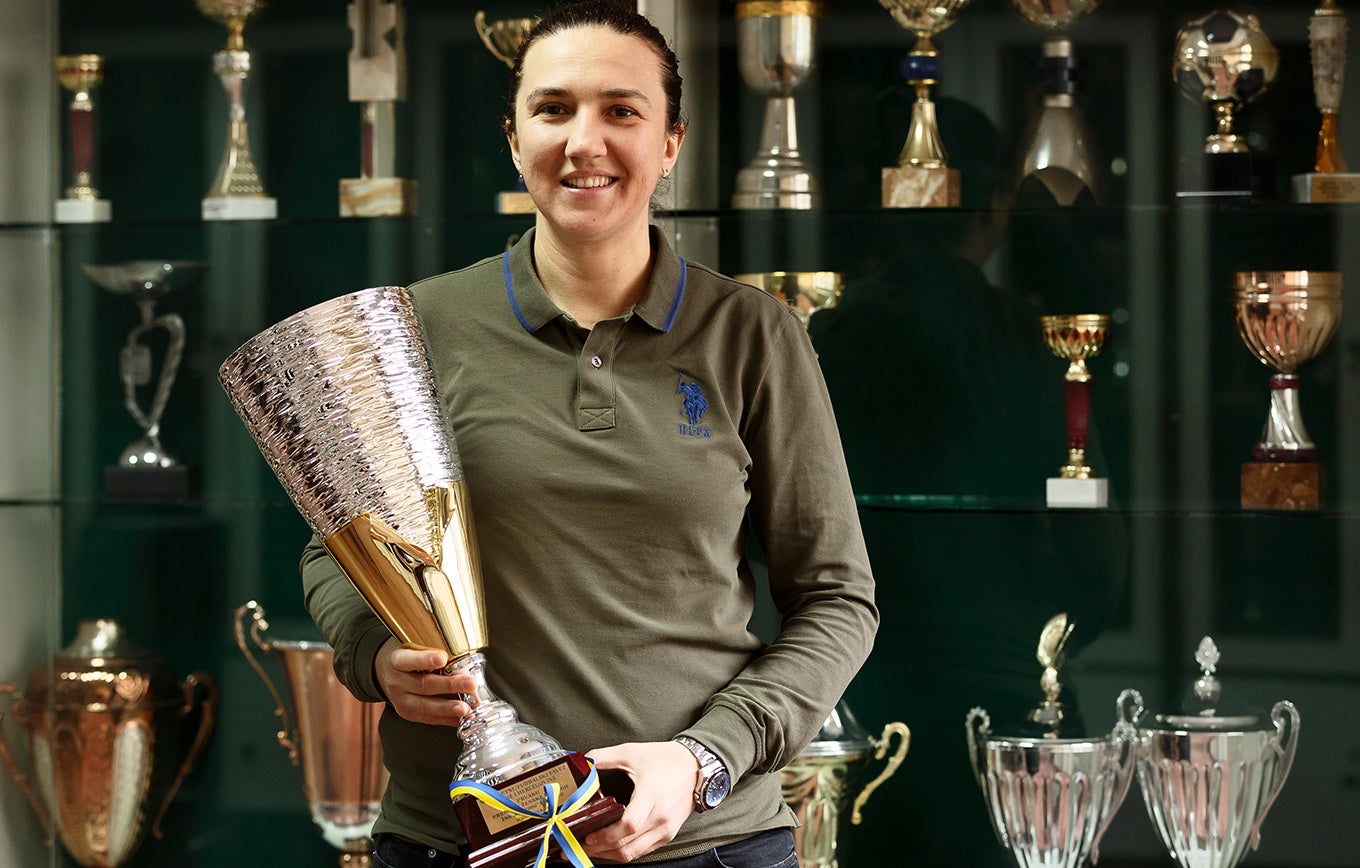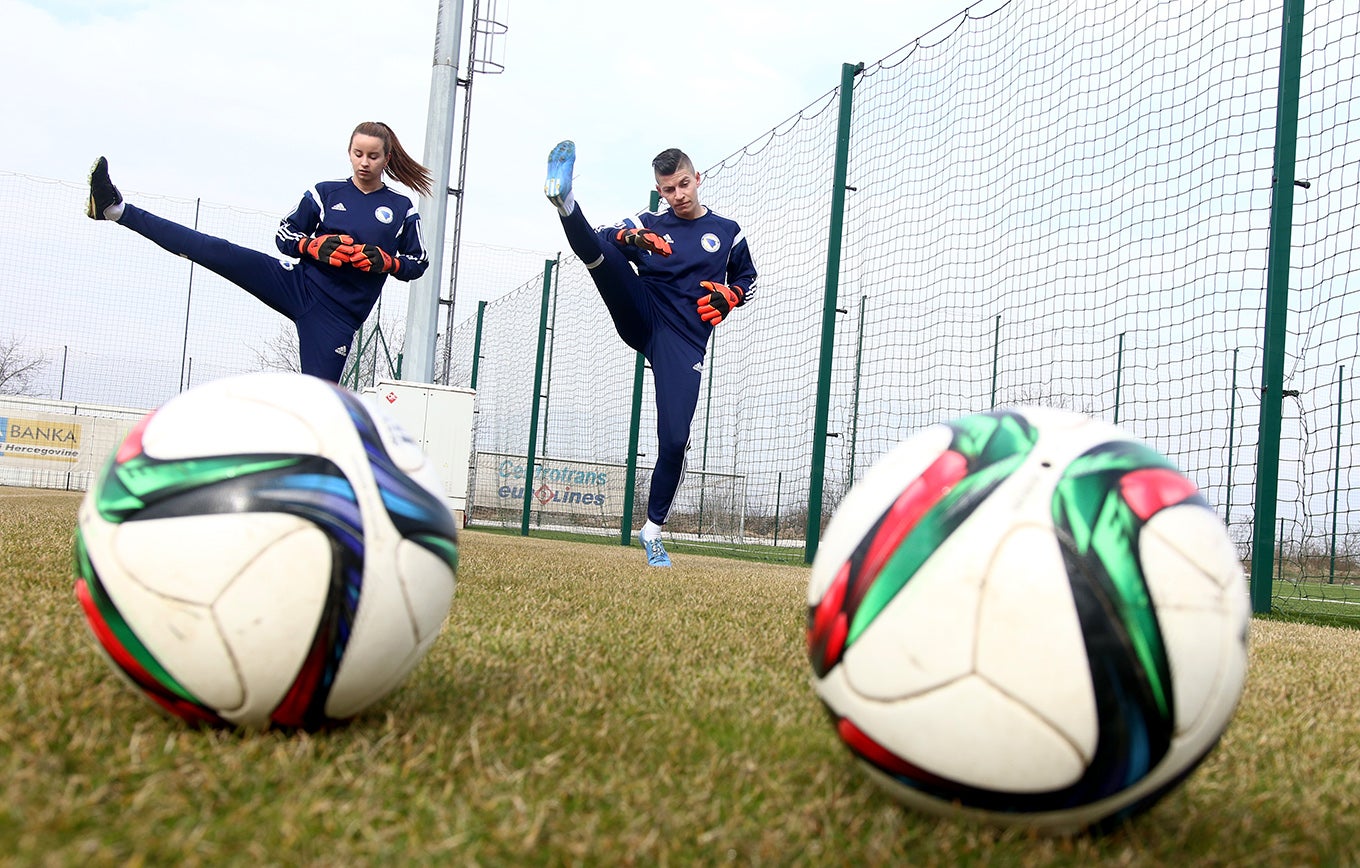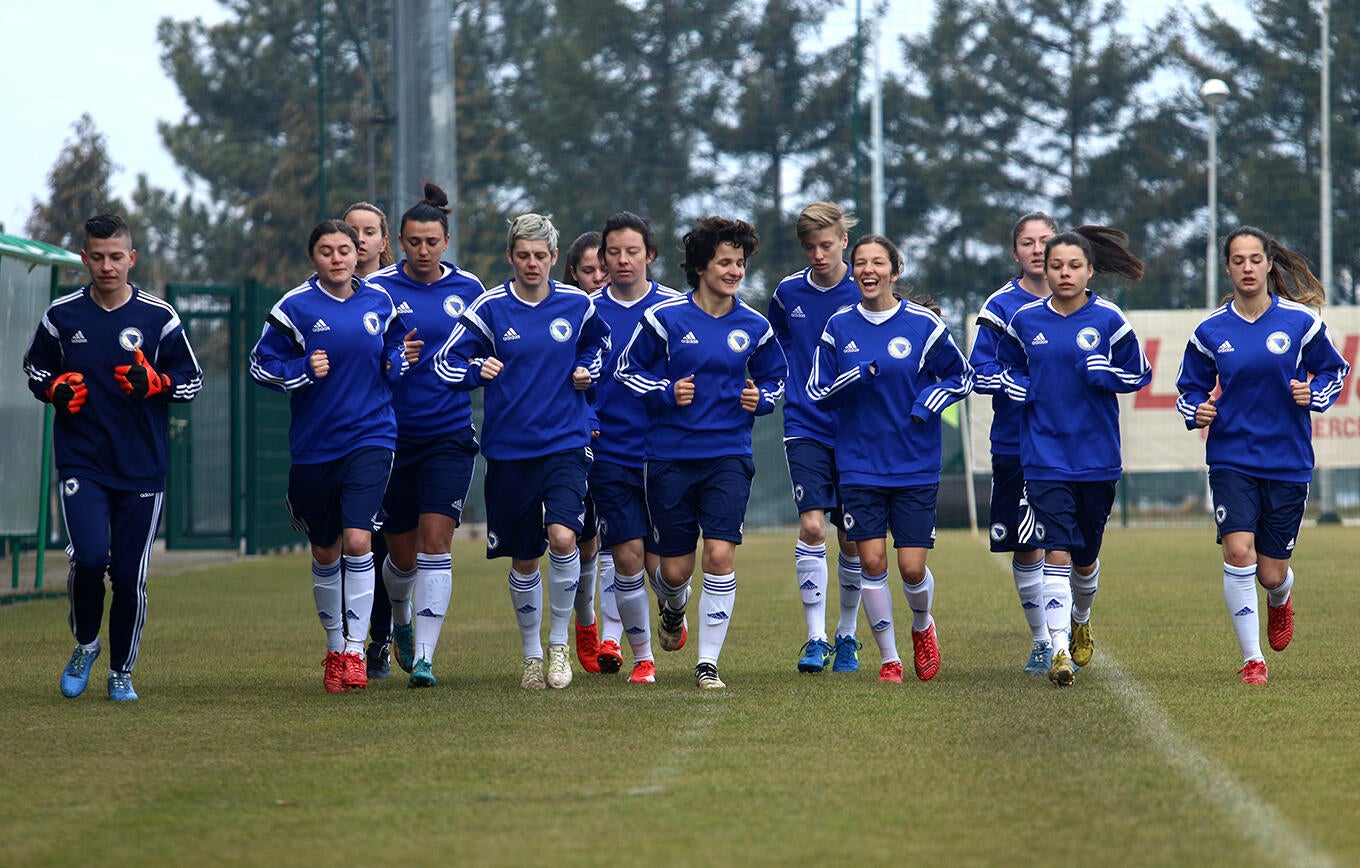SARAJEVO, Bosnia and Herzegovina — When Vildana Imamović was a child going to school, only boys got to play football in gym class, not girls. So while her peers in other countries were hitting the pitch from the age of four or five, Imamović didn’t get her chance until she was 15 years old, in 2000. That was the year that the women’s football club SFK 2000 Sarajevo was formed.
Despite her traditional family’s initial disapproval, Imamović got to fulfil her long-held dream of playing goalkeeper, but things weren’t easy for her, or for the other young women of SFK 2000. They had no home ground of their own, sometimes setting their dressing room up under a tree. When they played matches in rural areas, people would yell things like “Go home and make a pie!”
But over the past few years, women’s football has been growing increasingly visible and accepted in Bosnia and Herzegovina, offering life-changing opportunities and more prominent roles in society to women and girls. UNFPA supports women’s football in Bosnia and Herzegovina as a way to break down gender stereotypes, improve the self-esteem of girls and women, and contribute to their overall health.
Without football, everything would have been different in my life. —Vildana Imamović, SFK 2000 technical director and former player
“Personal fulfilment in sport is very important and in order to practice sports, a woman must be master of her own body. She must be free and empowered to make her own, informed choices in life, including choices about her reproductive rights,” says Doina Bologa, UNPFA Representative in Bosnia and Herzegovina. “We support women’s football in Bosnia and Herzegovina because it demonstrates very clearly and visibly that the success of individuals should be based not on their gender, but on the effort, commitment and energy they invest.”

Vildana Imamović, technical director for SFK 2000 and a former player for the team. ©UNFPA/Vanja Cerimagic
SFK 2000 has certainly been successful, dominating women’s football in Bosnia and Herzegovina with 14 consecutive national titles and even participating at an international level in early rounds of the UEFA Women’s Champions League. Their matches in Bosnia and Herzegovina sometimes draw more spectators than do men’s football league games, and the team has entered into a long-term cooperation agreement with the popular men’s club FK Sarajevo.
“Without football, everything would have been different in my life,” says Imamović, who is now SFK 2000’s technical director after seven years as the club’s goalkeeper and stints on Bosnia and Herzegovina’s youth and senior national teams. With the club’s support, she became a referee after her playing days were behind her, then got a coaching license, and a university degree in sports management.
SFK 2000’s current goalkeeper, Almina Alma Hodžić, is another woman whose life has been transformed by her involvement with the team. “I’m a single mother and I’ve been alone since the eighth month of my pregnancy,” she says. “I was 23, and completely confused. The club helped me and changed my life for the better when I didn’t know what to do.” SFK 2000 head coach and team founder Samira Hurem took Hodžić under her wing after their chance initial meeting, digging into her own pockets for the money the young player needed to travel to training sessions. Now Hodžić supports herself and her daughter — who cheers her on from the stands during matches — by playing football, both for SFK 2000 and for the Bosnia and Herzegovina national team.

SFK 2000 goalkeeper Almina Alma Hodžić (right) warms up with the BiH national team. ©UNFPA/Armin Durgut
Women footballers in Bosnia and Herzegovina still lag far behind male players — and behind their female counterparts in other countries — in terms of both earnings and prestige. And their teams often lack the resources for needed equipment, borrowing first-aid kits and other supplies to meet requirements for hosting prestigious competitions such as Champions League games.
What they don’t lack for, however, are team spirit and a family-like sense of solidarity. “There are so many girls on our team who don’t have even one parent. We’re doing our best to be a mother and a father to them, to learn together with them, to encourage them to go to school,” says Imamović. “Being on the team helps them grow into mature women.”
The club also sponsors soccer-school programmes that girls ages four to 16 can attend free of charge. Senior players from SFK 2000 run four training sessions a week during the programmes, doing their utmost to give younger girls the opportunities that they didn’t have while growing up.


